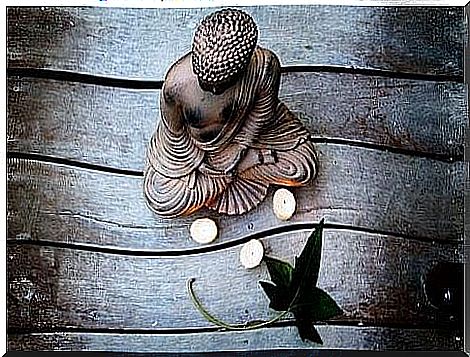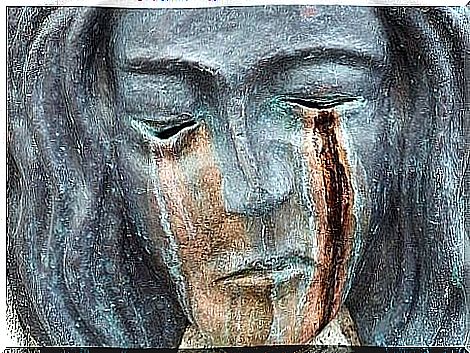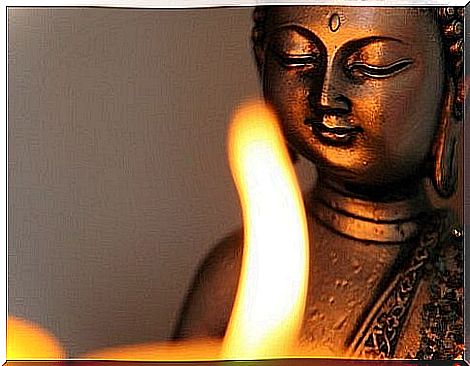Dealing With Fear According To Buddhism

According to Buddhism, dealing with fear involves dealing with your beliefs. In fact, this philosophy defines fear as a misconception. Fear stems from amazing and awful images that end up taking over your mind.
Buddhism also claims that fear finds its most fruitful root in the people who lack love. Bitterness, envy and selfishness are harmful ways of relating to others. Such feelings are the seeds of conflict.
In general , Buddhists believe that the best way to deal with fear is to focus on the present and live with compassion. This will make you feel stronger. As such, there will be less room for fear. Let’s dive deeper into this.
Fear and rejection of suffering
Buddhists say that the basic essence of fear is a feeling of rejection of suffering. They also claim that pain is inevitable, but suffering is optional. The former is related to how you understand fear. The latter is related to the way you handle it.
Fear of suffering comes from a rejection of unpleasant feelings that arise from loss, conflict and a difference between your desires and the reality you live. On the other hand, you do not necessarily have to suffer because of pain. Suffering is just one of the many answers available to you.
We assume, for our own sake, that our pain will hurt us. But it must not be so. To be successful in dealing with fear, you also need to know how to deal with pain. Pain loses a lot of power when you learn to accept it. And it loses even more power when you try to understand what you can learn from it.

If dealing with fear is your goal, focus on the present
In one way or another , fear is linked to the past or to the future. It is connected to the past when you dwell on the experience that scared you and marked you. You’re afraid that the same thing will happen to you again.
Fear is associated with the future because you sometimes imagine or assume that the future will lead to difficulties or painful situations. Your future makes you feel small and it scares you.
Therefore, Buddhism insists that one of the best ways to deal with fear is to focus on the present, the here and now. Focusing attention on it means that your mind cannot be filled with fantasies that only cause unnecessary fear.
Attachment is a source of fear
Mental and spiritual peace are polar opposites of attachment. It is very difficult for most people to understand this because they only focus on achieving things. We are not just talking about material possessions, but also emotional or spiritual “goods”. It also includes “having” love, “getting” peace, etc.
Buddhism says that we should stop trying to have things. In other words, we must try to be disconnected. Buddhism teaches that nothing belongs to us, not even our own lives. Everything that comes into your life, and even who you are, is nothing but a fleeting reality.
When you do not understand this, attachment arises in your life. And with connection comes the fear of loss. This is one of the strongest fears because it will be a vicious cycle. The more you are attached to something, the more fear you feel about losing it. And the more anxious you feel, the more you become attached to that thing. Allowing what is and accepting that everything is temporary will help you deal with fear.

Escaping is never an option for dealing with fear
For Buddhism, we make mistakes to learn from them. When you just dwell on your mistakes, you feed your fears and anxieties. When you make a mistake and do not learn from it, the situation that caused you to make the mentioned mistake will probably repeat itself.
All these Buddhist principles of dealing with fear are complicated. However, you can teach them with patience and perseverance. In many ways, they crash with the values of Western society, which is why they are not easy for many people to absorb. Nevertheless, if you often feel fear, you may want to investigate them further.









